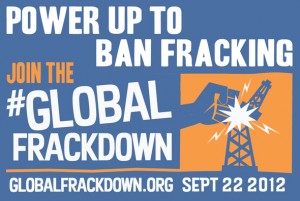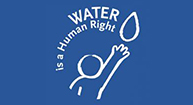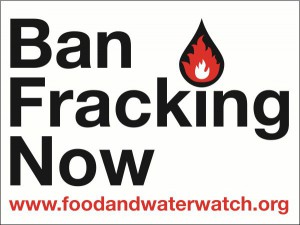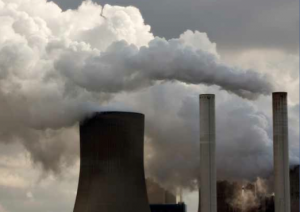Update: Firenze 10+10 brought together many civil society movements across Europe over 4 days of discussion and planning. Food & Water Europe coordinated the European Water Assembly where an agenda for 2013 was set for the water movement. We also participated in the convergence sessions on the Commons with groups working on food sovereignty, fracking, large infrastructures, health, education and sports.
We invite all of you to join us on the following common European action dates decided in Firenze: 23-27 January 2013 will be a week against the financialization of nature and banks to coincide with the World Economic Forum meeting in Davos, 22 March 2013 is World Water Day where decentralized actions on water will take place all over Europe with a common action in Brussels and 23 March 2013 will be an European Day of Action against the EU Summit in Brussels. Stay tuned and mark your calendars!
What is Firenze 10+10 and How Is Food & Water Europe Central to It?
Food & Water Europe will participate in Firenze 10+10 by coordinating the pillar on the Commons; as part of the of the newly formed European Water Movement and through the Financialization of Nature network which fights to stop the “assetization” of our natural commons.
It has become increasingly evident that local movements need to coordinate at the European level as well. Local victories, though powerful, are no longer sufficient to withstand pressure coming from the Troika (European Commission, European Central Bank & International Monetary Fund), who is pushing through mass privatization through conditionalities for rescue funds.
Europe needs to build a new European Public Space. We need to look at the next 10 years with common objectives, agendas and strategies. The crisis –in its multiples facets – and austerity policies can be overcome, but we need to move beyond our fragmentation and our one-issue focuses to stand on common ground.
Ten years ago, Florence, Italy hosted the first ever European Social Forum. It constituted an extraordinary moment in the construction of a continent-wide demonstration, presenting analyses, proposals and solutions which – had they been translated into policies – would have helped to avoid the social and democratic crisis in which Europe finds itself now.
Ten years on, there is neither nostalgia nor a desire to celebrate what we had then; even less do we intend today to repeat paths which belong to that time and that stage of development: the social movements have changed, new actors have emerged, there have been defeats but also victories, such as that of the water movement in Italy which won a crushing referendum against privatization last year.
So come join us in Firenze to build convergences and a common action for Europe.



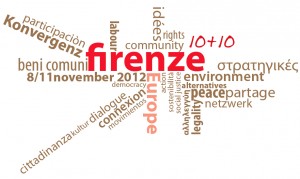 By
By 